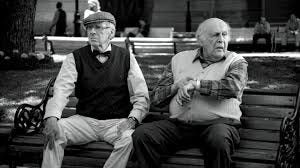“Ageism is defined as discrimination against older people because of negative and inaccurate stereotypes—and it’s so ingrained in our culture that we often don’t even notice.”
So says the American Psychological Association. The APA goes on to say that when older people are subjected to ageism, it is actually mentally and emotionally harmful to them.
Moreover, it is simply unfair.
But the trouble with ageism is that it is ingrained in much of societal attitudes and it is one of the most pervasive. At least sexism has been exposed for what it is and even though it does still exist, its very exposure is its ultimate death knell. Ageism isn’t so “lucky”.
Remember how television commercials used to feature only women doing housework: washing dishes, scrubbing toilets, doing laundry, cleaning floors, and cooking the meals? Well, more often than not, those commercials now feature men or even kids doing the household chores. And why not? They should! These commercials exist because the mindset around stereotypes in the “typical” household has shifted.
Now consider how older people are featured in many commercials. Here’s an example.
TD Bank in Canada ran a television and print campaign about 15 years ago that featured two “old guys” sitting on a park bench across from a TD branch. One ad promoted the fact that the bank stayed open late so the “grumpy old men” – the term the bank’s VP of Corporate Marketing actually used to describe them – walk into the bank and start to quiz the receptionist on why the bank was open after dark. The pair shake their heads dismissively, projecting the idea that they are just not keeping up with the times and they hate change.
Another ad shows the two on a park bench muttering about how two kids on the bench next to them are sitting in their spot.
Even StrategyOnline refers to the two elderly guys as “geezers” in its story exploring the aim of the ad campaign.
So, what does the general public conclude over time? That people over 60 are “geezers”, busybodies, and incapable of adapting to change, even being ignorant of change. And they have nothing to do all day except sit on park benches.
Let’s face it: ad agencies and corporate marketing departments are rarely staffed with insightful individuals who manage to see past the veneer. Rather, they blindly accept and reflect what society at large believes.
Although that bank TV campaign was 15 years ago, older people are still portrayed as weak, helpless, and hapless on TV. They’re “losing it” mentally; they shuffle when they walk; they are barely tolerated and they are often the butt of jokes.
Against this background of marketing ignorance comes a breath of fresh air in the form of a former ad executive with McCann, one of the world’s biggest ad agencies.
Dave McCaughan, who is 68 years old, has undertaken a one-man mission to demonstrate to marketers how they are wrong, where they are wrong, and why they are wrong in their attempts to sell to seniors.
And he has the data to back up his views.
He’s our guest this week on The Art 2 Aging and his comments will make eminent sense and perhaps create a shift in attitudes. Even if just a little.





